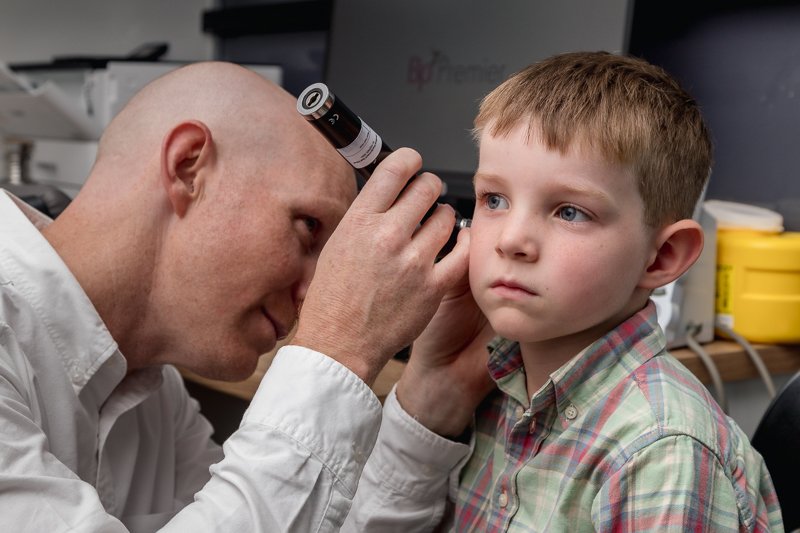What Is Multiple Sclerosis?
Multiple sclerosis (MS) is a condition that affects your central nervous system and interferes with the nerves in your brain, spinal cord and eyes. MS is a lifelong condition. It can’t be cured, but it can be managed and treated.
MS strips away the protective covering of your nerve fibres (known as myelin). A healthy myelin sheath allows electrical impulses to move quickly and efficiently along your nerve cells, a bit like a car driving smoothly and speedily along a well-paved road. When the myelin sheath is damaged, the electrical impulses travelling along it are slowed down, causing communication problems between your brain and your body. It becomes more like driving cautiously down a road full of potholes.
There are a few different types of MS and, over time, you might move from one category into another. Most people have relapsing-remitting MS, where the disease flares up (relapses) from time to time then settles down again (remits). In time, that can turn into secondary progressive MS, where there’s a progressive worsening of symptoms with no remission periods. About 10-15% of people with MS have primary progressive MS, where there’s a progressive worsening of symptoms from the beginning.
Who Gets MS?
MS is a common chronic condition affecting over 25,000 Australians. Most people are diagnosed between the ages of 20-40. It is much more common in women than in men.
What Are the First Signs of MS?
MS causes many and varied symptoms but some of the more common, early ones are:
1. Sensory change in limbs: This is a common early symptom, often the first one that people notice. Your hands, feet or other parts of your body may become numb or have an abnormal sensation because your nerves aren’t working properly. You may notice that you can’t do up your buttons or that you drop things because you can’t feel how to hold them properly.
2. Visual loss or changes: Blurred vision, double vision or sight loss can happen when MS affects the optic nerve at the back of your eye.
3. Weakness
4. Balance problems or gait disturbance (walking patterns)
5. Vertigo: A sensation of dizziness worse with movements
6. Spasticity: Muscle stiffness or spasms can produce a sense of tightness or uncontrolled jerking
7. Pain: Over half of people with MS live with ongoing pain, usually caused by damage to the central nervous system.
8. Incontinence: MS affects the nerve signals that help you control when you go to the loo. About 80% of people with MS experience bladder dysfunction. Your bowels may also not work reliably.
How Is MS Diagnosed?
Sometimes there’s a clear path to a diagnosis of MS and sometimes there are many frustrating detours along the way.
If you have a sudden, severe attack, you might receive an MS diagnosis while you’re in hospital.
Some early MS symptoms could be signs of many other possible disorders and can be hard for your GP to interpret until the MS begins to show itself more clearly. If your GP suspects you have MS, they may order a MRI on your Brain and Spinal cord and they may refer you to a Neurologist, a doctor who specialises in understanding your nervous system.
Your neurologist will examine you and may order more investigations such as a lumbar puncture, and other tests that may show signs of scarring in your brain or spinal cord.
If you do have MS, your neurologist, GP and allied health professionals such as a physiotherapist will work together to help control your symptoms.
What Causes MS?
In autoimmune conditions like MS, your immune system, which is supposed to attack disease-causing bacteria or viruses for example to protect your body, has mistakenly attacked vitally important cells instead.
We’re not yet sure what triggers this process but we know that you’re at more risk of developing MS if you’re female, have a family history of the condition, live in a temperate climate and are Caucasian.
How Can We Help?
If you’re concerned about MS because you’ve noticed some symptoms, then please come and see us. In the early stages of MS, there may be a bit of medical detective work to rule out other possible causes of your symptoms.
At Peregian Family Medical Centre, we promise to do a thorough job, listening to your concerns and your symptoms, examining you and ordering any tests that might help us find out what’s going on. If we begin to suspect MS, then we will co-ordinate your care with the appropriate Specialist Doctors. We’ll journey with you through the ups and downs of MS, coordinating your care and helping you learn how to live with the condition.
Please make an appointment to see one of our skilled and sympathetic doctors today.






